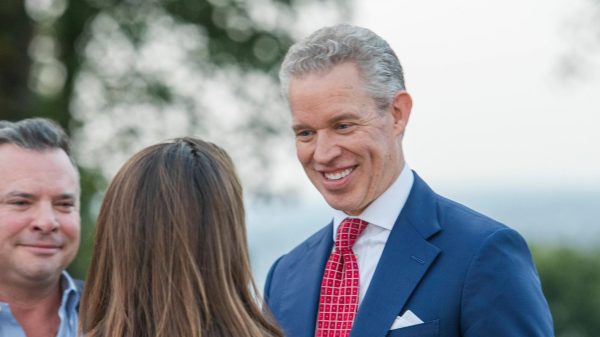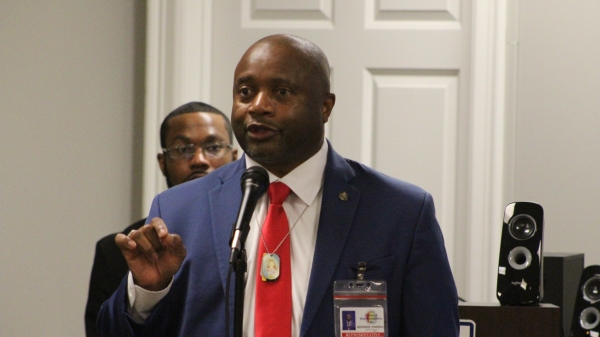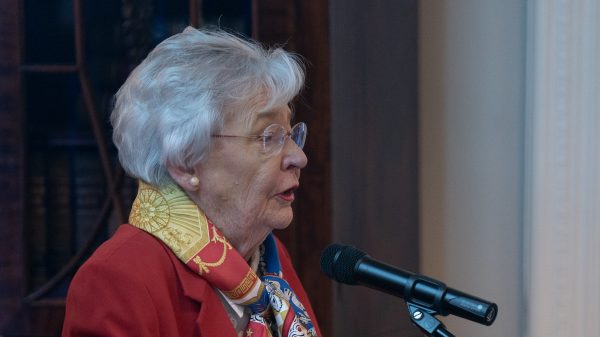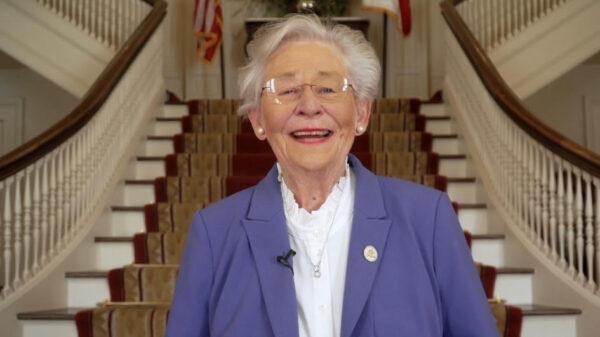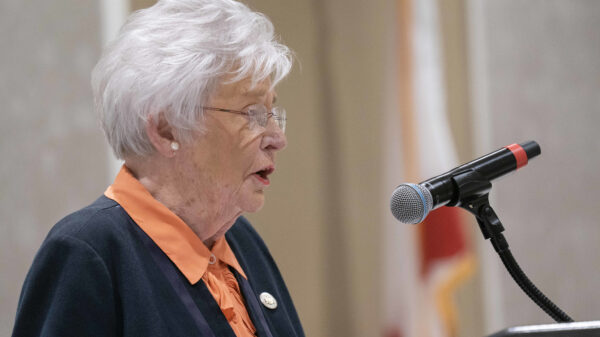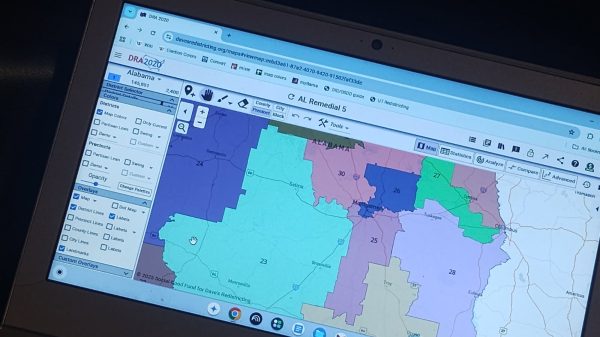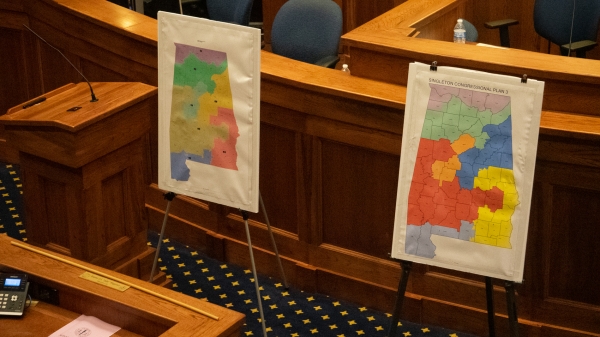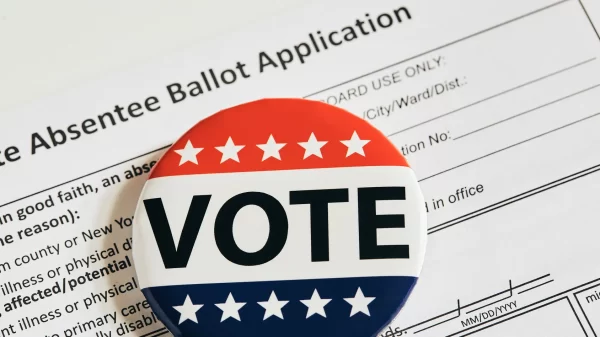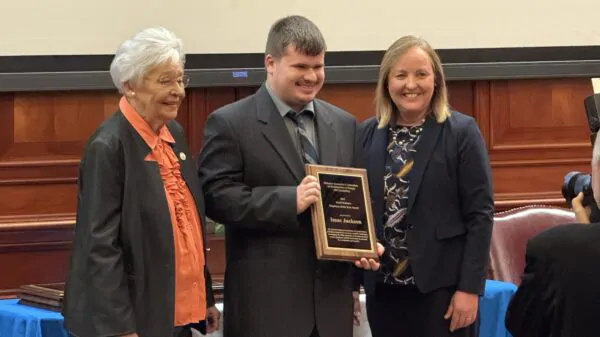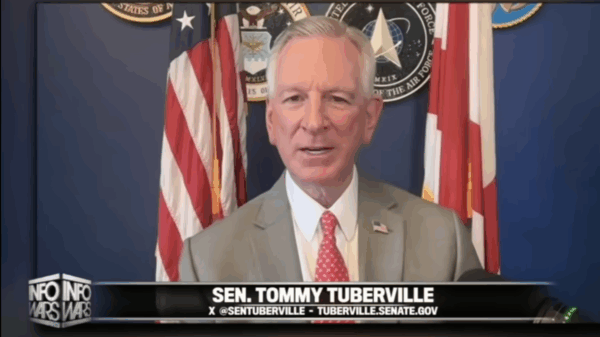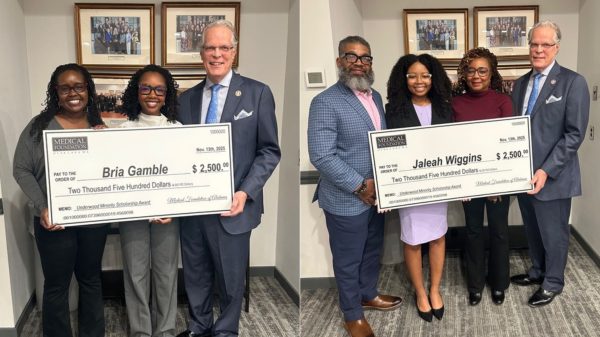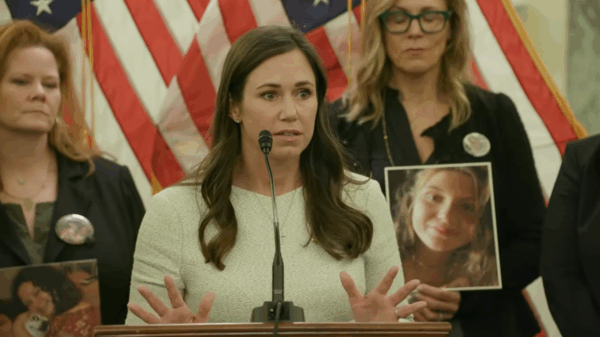When the Alabama Legislature’s 2024 session begins in March, there will be a familiar item on the agenda — gambling.
For roughly the 15th time in the past 20ish legislative sessions, lawmakers will take a stab at passing some form of comprehensive gambling legislation. But unlike those failed attempts of the past, the 2024 effort will have something a little different:
A House Speaker pushing the bill.
Speaker Nathaniel Ledbetter, R-Rainsville, has made no secret of the fact that he’s on board with the gambling legislation that will emerge from a gambling committee he put together. That committee is expected, according to sources with knowledge of the committee’s work, to introduce a comprehensive bill that would, if approved by voters, legalize gaming at certain locations around the state and also significantly expand the regulation of gambling and strengthen laws against illegal gambling operations.
Ledbetter told APR on Tuesday that he’s supportive of the legislation primarily because of the regulation. But that support, no matter what motivates it, is significant.
Alabama lawmakers have been toying with the gambling issue for more than two decades now, dating back to the years of dog tracks and video poker in the early 1990s. The legislature has made a number of runs at passing legislation that would legalize certain types of gambling, but there always seemed to be a stumbling block along the way.
Typically, that stumbling block was in the House, where leadership was never more than begrudgingly allowing a vote to happen. In fact, the last four times that gambling legislation had a serious chance, all four bills originated in the Senate, passed out and then died in the House, typically after utter chaos ensued because there was little leadership to steer it through.
(Case in point: in the mid-2000s, an electronic bingo bill that had widespread support – and that would have ended the gambling fight over those games before they really started – died in the House when a representative “forgot” to show up for the vote.)
In Ledbetter’s case, however, he views his support of the legislation as far less about the advancement of gambling in Alabama and far more about curbing the illegal activity that’s currently rampant in the state.
“I’ll be honest with you and say that I simply had no idea just how widespread of a problem we have,” Ledbetter said. “We don’t have hundreds of illegal gambling operations. We probably have more than a thousand. They’re all over the state, in every county, everywhere you go. And they’ve got real problems. People are selling drugs around some of these places. We have some serious criminal activity around them.
“We just can’t let this go on any longer. It’s a public safety issue. People want to push back against this as saying we’re expanding gambling, but that’s absolutely not the case. If we pass this legislation and put in place serious enforcement and regulations, we’ll go from more than a thousand gambling outfits to just around 10 – 10 that are well regulated and licensed.”
Ledbetter and others familiar with the process said the gambling that is likely to be filed in the House will look a lot like a comprehensive gaming bill sponsored by Sen. Greg Albritton, R-Atmore, in the 2022 session.
That bill would have legalized full casino gaming at five locations around the state – the four dog tracks in Shorter, Greene County, Birmingham and Mobile and a new location in northeast Alabama. In addition, it would authorize Gov. Kay Ivey to enter into compact negotiations with the Poarch Creek Band of Creek Indians, eventually bringing full casino gaming to their current three locations in Atmore, Wetumpka and Montgomery. Additionally, limited gaming (likely only electronic bingo) would be allowed at two locations in Dothan and Lowndes County for a limited number of years.
That bill was projected to be paired with a lottery expansion bill, and all combined was expected to generate nearly a billion dollars annually in tax revenue. That figure did not factor in the cost of licenses. It was also projected to generate between 12,000 and 15,000 permanent jobs and drive billions of dollars in associated revenue to the cities and counties where the casinos would be located.
But for Ledbetter and a growing number of lawmakers, the revenue and job growth are almost secondary to cleaning up a growing illegal gambling industry that is producing billions in under-the-table revenue. Over the past several years, APR has documented the growing concerns of law enforcement officials over the growing, unregulated illegal gaming operations all over Alabama, and their alleged ties to organized crime, known criminals and drug operations.
In addition, the few laws that are in place in the state have mostly been applied unevenly, and some would argue unfairly, to a number of facilities in counties with bingo amendments. In Greene County, where GreeneTrack was essentially shuttered by the state for failing to pay a disputed tax bill, numerous other electronic bingo casinos are operating apparently under different tax laws.
APR reported extensively on the numerous issues with gambling in that county, including a recent lawsuit filed, and later dismissed, by the county sheriff, alleging that the electronic bingo casinos in the county were all operating illegally. APR reported that the sheriff had accepted campaign donations from one of the county casinos.
In Jefferson County, where the sheriff also has been tied to numerous casinos operating in that county, Ledbetter said there are more than 100 casinos in operation.
“It’s like the wild west in this state for gambling,” Ledbetter said. “We don’t have the regulations and we don’t have the people in place to enforce the few laws we do have. It’s just rampant.”
For that reason, Ledbetter said the new gambling bill will have a strong regulation component, putting in place more serious laws, creating a regulatory body and employing the necessary number of law enforcement officers to adequately police gaming in the state and shut down the illegal operations.
“I look at this a lot like prohibition, where the illegal alcohol sales were so widespread that the only solution was to legalize some and concentrate on enforcing laws,” Ledbetter said. “I believe that’s what we have to do here.”
For that reason, Ledbetter said he doesn’t see a way to implement an enforcement and regulation aspect without legalizing and taxing gaming at the same time in order to generate the revenue that will be required to hire the personnel for enforcement.
Of course, all of this, as always, is a 50-50 shot in this state, thanks to the weird configuration of gaming laws, wealthy casino owners, wishy-washy lawmakers and the role of the church. Already, some lawmakers have told APR that they’ve heard pushback from colleagues who don’t want to shut down businesses – even those deemed illegal by law enforcement – in their districts and anger the casino owners who donate heavily.
In addition, in years past, the illegal gaming operators and the gaming operators in nearby states have been found partnering with religious groups to push against any legalization efforts. As one lawmaker put it: “Whenever you do this, you’re battling both the Christians and the criminals.” But that reality hasn’t lessened Ledbetter’s resolve on the issue, likely because the overwhelming majority of Alabama citizens want an opportunity to vote on the issue.
“We’re going to take a good run at it no matter what,” Ledbetter said. “I think we have the votes there to pass it, and I think the people of this state – who 91 percent say they want an opportunity to vote on this either way – they will be supportive of an opportunity to vote on it.”


